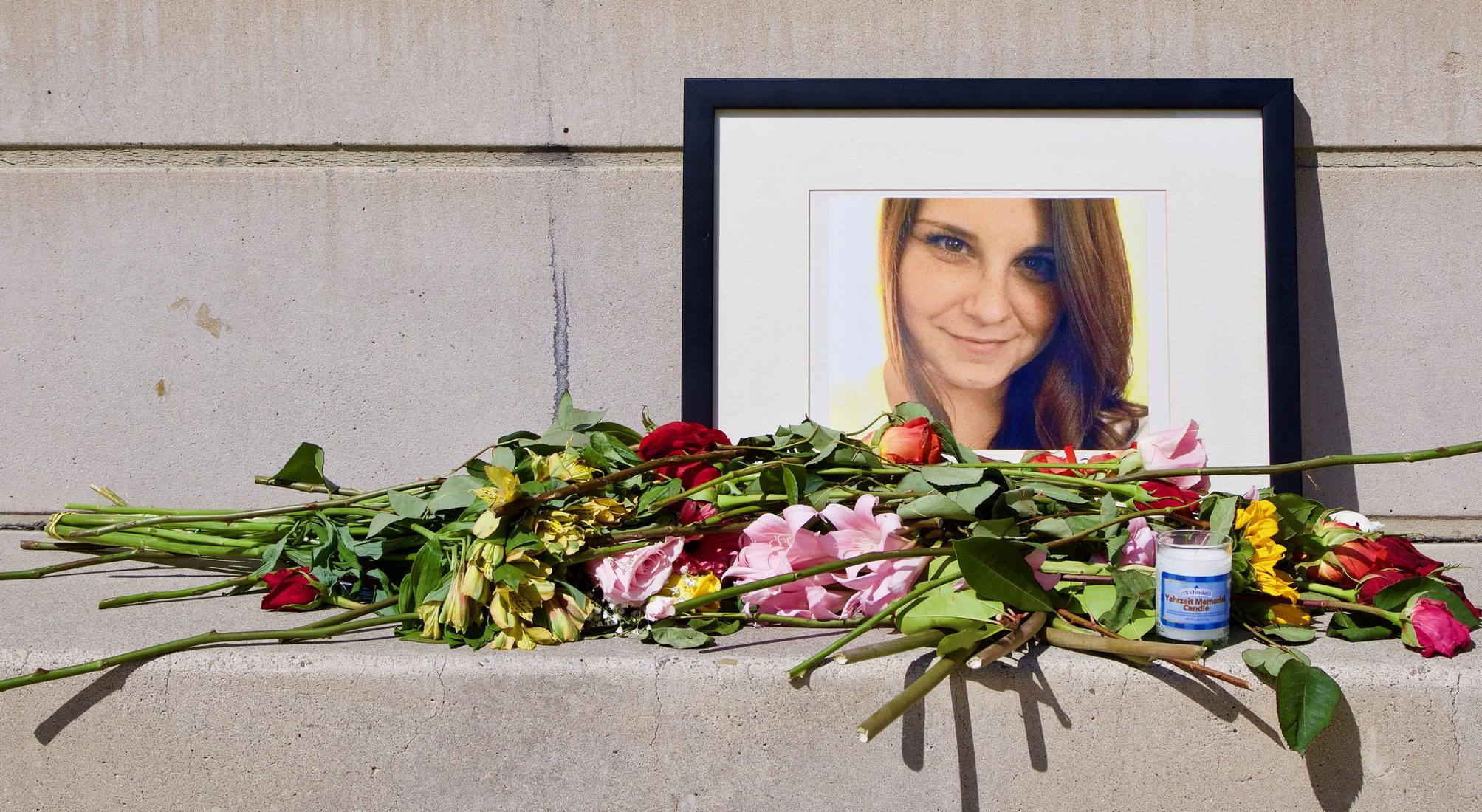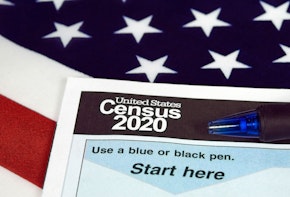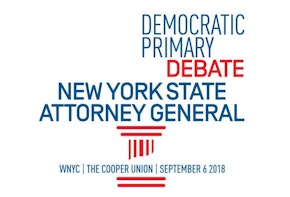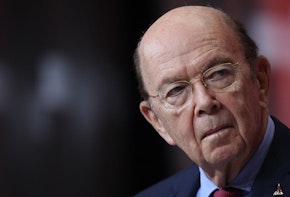Introduction
By Mark Zuckerman, President
In the wake of the white supremacist demonstration that left a counter-protester dead in Charlottesville, Virginia, the past days have been filled with reflection at The Century Foundation (TCF). Our disgust at the hatred spewed in Charlottesville was only compounded by our president’s egregious false equation of those trying to protest against white supremacy with those trying to perpetuate it, as well as by the recognition that racism has deep roots in U.S. history and policy.
There is no equivalence between those counter-protesters and our nation’s long history of racism—sanctioned slavery, followed by generations of unchecked lynchings and violence, murderous rampages of the KKK, Jim Crow, pernicious unrelenting discrimination, and virulent opposition to the passage of sweeping civil rights laws. Racism exists today as more than historical statues or monuments; it pervades the lives of millions of Americans in the forms of systemic discrimination, poverty, and unequal opportunity fueled by policy. Perceived threats to this legacy of white privilege is why white supremacists marched in Charlottesville, and a reason why our president—elected while amplifying their message—repeatedly emboldens them.
There is also nothing equivalent to those marching in Charlottesville parading with Swastikas and Tiki torches, essentially celebrating the murderous actions by the Nazis’ genocide of 6 million Jews. One doesn’t have to go far to be reminded of this—sitting in Charlottesville at the U.S. Army facility operated by the Judge Advocate General’s office is one of two original copies of the Nuremberg Trials, a forty-two volume, 330,000 page transcript meticulously collected over 1,200 days documenting the Nazi machine of unspeakable mass extermination, torture, and depraved medical experiments on Jews and other targeted peoples.
These voices from the grave wash over us now, always more powerful than a demagogue’s tongue.
Below is a compilation of personal reflections and comments following the events in Charlottesville from Century Foundation staff and researchers.

If You Want to Fight Racism, Attack More Than Its Ugliest Veneer
By Kimberly Quick, Policy Associate
Sudden moral outrage sans anti-racist action doesn’t indicate enlightenment, but rather disappointment in the loss of subtlety in our bigotry. Nazi antics are undeniably deplorable. But the recent public response has largely recognized them as such because the swastika-wielding, fatigue-wearing, assault-rifle-toting optics fit nicely into the laziest definitions of racism—ones that characterize it as a stain on an individual human heart rather than as a set of actions and decrees imbedded in our policies.
White outrage over overt spectacles of salivating klansmen, but simultaneous support of the current policies that sustain the marginalization of minorities, is not just complicity—it’s hypocrisy. Where was this “bipartisan,” multiracial outrage over the extrajudicial killings of black citizens, the continued segregation of schools and neighborhoods, the gerrymandered districts that restrict minority voting power, the elevated surveillance of minority neighborhoods, the scourge of mass incarceration, or the pervasive wage gap?
As a black woman, I’m not impressed by well-mannered politicians pearl clutching at the vitriol of those who want a white ethno-state while simultaneously supporting efforts that systematically disenfranchise non-white people. I’m unmoved by tough-talking pundits who decry violence by the Proud Boys but sneer when a black person, asserting their humanity in the face of such violence, states that “Black Lives Matter.” And I’m likewise uninspired by superficial calls for mutual understanding when black and brown people in America have long bore witness to the dangers of racism and hate but were told by these same people that their experiences were overblown or self-inflicted.
If we want to fight racism, attack its roots. We shouldn’t get credit for simply lamenting its ugly veneer.
A Heartbreaking Setback
By Jeff Madrick, Fellow
Racial and ethnic hatred was always part of America’s imperfect history. The Swedish, Germans, Italians, Irish, Jews, Japanese, Chinese, American Indians, Mexicans, blacks in particular, and the new industrial workers have all been the victims of harsh, often violent discrimination—and women in general have been perpetual victims at home and in society. Prominent politicians and commentators often led and provoked this discrimination. Trump had many predecessors.
America’s finest achievement, however, has been to oppose and defeat men and women like Trump and ultimately to win these groups the rights America promises them.
But there were setbacks. The Jim Crow south, which passed laws to segregate blacks long after the Civil War, is the starkest example. In this period, many of today’s controversial statues honoring Confederate soldiers were built. The laws were mostly overturned but bigotry in more subtle ways went on. Blacks were left out of key social policies in the New Deal. Public schools are still not adequately integrated, despite the 1954 Supreme Court decisions. Affirmative action was rightly meant to correct such persistent injustice.
Trump is a heartbreaking setback to America’s social and economic progress. Racism is bad for the nation’s soul and also its economy, depriving so many of the opportunity to contribute to growth. The views of men and women like Trump have almost always been defeated. But it is not inevitable.
When Condemnation Isn’t Enough
By Alex Edwards, Communications Director
One of the most revealing things in the aftermath of Charlottesville was just how many people across the country, especially young people, were surprised by the existence and organization of white supremacists—surprised that groups like those exist today. In a way, that’s a good thing: it underscores that America is moving in a direction where hate and bigotry are less prevalent, less tolerated. It’s also worrying, though, for what it says about our collective ability (or rather, inability) to recognize just how real and profound racism remains today.
As Dr. Martin Luther King Jr. once said, the greatest tragedy in the face of injustice is “not the strident clamor of the bad people, but the appalling silence of the good people.” Yes, neo-Nazis and the KKK are fringe and fleeting groups, and they should be denounced often and loudly. But combatting hate requires more than simply condemning hate; it compels us to first identify and then fight against the countless ways in which discrimination is baked into our society, our politics, our economy, and even our own internal biases.
People like Richard Spencer are undoubtedly detestable, but we cannot allow them to divert our attention from the critical work that is needed to achieve racial justice in this country. If we neglect to use this moment as an opportunity to strengthen movements for equality, we will have succumb to appalling silence.
The Inconvenient Truth of Oppression
By Tariq Habash, Policy Associate
In the aftermath of Charlottesville, politicians across the country made sure to let us know that this is not who we are. Some went a step further, like former Secretary of Education Arne Duncan, who posted a tweet that surely resonated with many—“I used to say this is not who we are. I can’t say that anymore—it is. And it’s government sanctioned. We must change.”
I used to say this is not who we are. I can't say that anymore- it is.
And it's government sanctioned.
We must change.#charlotesville— Arne Duncan (@arneduncan) August 13, 2017
But the politically opportune message of “this is not who we are” is intrinsically troublesome—it whitewashes centuries of subjugation of black and brown people. It ignores state sponsored hate that has persisted from times of slavery and Jim Crow to today. It minimizes the effects of our flawed criminal justice system which targets and imprisons so many from our minority communities. And it disregards the oppressive police state designed to protect those most empowered at the expense of the most marginalized.
Oppression, hate, and fear of black and brown people has been a defining feature of living in America. If you are just noticing it now, it’s because it was convenient to ignore it before.
We Don’t Get to Pick and Choose When We Talk About Racism
By Alexandra Kisielewski, Media and Events Coordinator
The protests in Charlottesville and President Trump’s nefarious and ignorant response elicited rebuttals from a wide variety of public figures across the partisan spectrum. Political pundits, union leaders, business moguls, elected officials, and everyone in between spoke up to rightly condemn white supremacy and berate President Trump for his delusional reactions.
But would these power-yielding voices have spoken out if Charlottesville hadn’t happened? We live in a country where extremist and terrorist groups stir beneath the status quo surface, and we tenuously allow them to exist as long as they keep quiet. Then suddenly, after the death of a peaceful protester, the immorality of white supremacist ideas rose to be the main topic of national conversation. This should be a wake up call that we’re merely playing defense—not offense—against hate groups in this country. When our only action is reaction, it means we’re taking a back seat to everyday injustice.
I’d like to also share a quote I found poignant and relevant from an article authored by a compilation of creators who are people of color:
America and its institutions have a long history of stifling POC [people of color] voices with indifference and violence; instead of pens and pulpits, people now have mastheads, keyboards, and Twitter accounts… We cannot even talk about the truth behind our own discrimination or racial abuse without being further abused and discriminated against, particularly on social platforms that have broad reach but don’t protect users—celebrity or not. Advising people #dontreadthecomments isn’t enough. It’s not enough for people like me to control, manage, navigate their own behavior for fear of white reaction. It’s time for white people to listen and hold other white people accountable…
—Shakirah Simley, co-founder, Nourish | Resist
White Nationalists and Counter-Protesters: A Disgraceful False Equivalence
By Michael McCormack, Economic Policy Associate
The forces of fascism were aided and abetted by Mr. Trump’s words after Charlottesville. Many already knew how odious the administration was in its implicit defense of white supremacy, but the president’s shameful comments made that odiousness explicit.
Trump’s disgraceful false equivalence between the actions of white nationalists—which included the murder of labor activist Heather Heyer—and the actions left-wing counter-protesters—which mostly involved protecting people from physical assault—rightfully provoked outrage for most but jubilance for some. Now, other far-right events have been planned.

I have roots in Massachusetts and the Boston area. When I heard news of the so-called “Free Speech” rally organized in Boston by groups connected to those that had convened the Charlottesville rally, I was worried. It’s no secret that Boston has a racist past, which could mean a big turnout for hate. But we also have a long history of community solidarity.
That latter legacy won the day.
On Saturday, thousands convened and defended the Common from hate speech. It was a full-throated rebuke that points the way to fighting white supremacy and bigotry. When people stand up and resist, the alt-right stays home. The brave counter demonstrators in Boston and Charlottesville deserve to be lauded for these efforts, not lumped in with Neo-Nazis.
American Business Has Turned Its Back on Racial Hatred
By Jason Renker, Editorial Director
The Century Foundation was founded by Edward Filene, a progressive Republican businessman, so it is refreshing to see the business community’s swift and ongoing rebuke of Trump for his weakness in confronting the hateful racism of white supremacists in Charlottesville.
Things happened fast. Kenneth Frazier, the CEO of Merck & Co., led the charge by immediately stepping down from Trump’s Manufacturing Council following Charlottesville (he was the only African-American on the council). Other members quickly followed, until Trump disbanded the council. Another business advisory group, the Strategy and Policy Forum, didn’t wait to hear from Trump, and instead decided to disband itself. And, so many members quit the still-forming Advisory Council on Infrastructure, Trump canceled its plans. (Surprisingly, the business community was faster at signalling their rejection of White House rhetoric than the arts community was: the President’s Committee on the Arts and Humanities didn’t disband in protest until Friday.)
Companies don’t need wedge issues to polarize voters and win primaries—and they certainly don’t want their brands to lose market share because they’ve been tainted by racism. And so, for these and other reasons, American businesses have long embraced racial diversity, tolerance, and inclusion, and have signalled this through their advertising. At times, this messaging has been criticised: racists outspokenly hated General Mills’ 2013 Cheerios television commercial simply because it featured a multiracial family, and Proctor and Gamble is currently getting heat for one of the bravest ads ever.
American businesses have realized that no good comes from a divided country; why can’t the president?
Where Does It Stop?
By Halley Potter, Senior Fellow
At a press conference after Charlottesville, President Trump defended white nationalists and equated removing confederate monuments to toppling statues of George Washington and Thomas Jefferson, asking “Where does it stop?”
On one level, this slippery-slope fallacy ignores important differences in the legacies of American figures. It is tempting to reject Trump’s logic simply by drawing a line that separates leaders of the American Revolution from leaders of the Confederacy. But doing that is the easy way out.
When we see statues of Washington and Jefferson, we should think twice about what those figures represent, and for whom. I grew up just outside Charlottesville, and an outsized portion of my public school social studies lessons focused on Thomas Jefferson, the “Author of the Declaration of American Independence, of the Statute of Virginia for religious freedom, and Father of the University of Virginia,” as his self-written epitaph would have him remembered. But Jefferson also enslaved hundreds of people, raped a 14-year-old child, and chose not to free the vast majority of his slaves even after his death. We should not remember even figures like Jefferson, whose civic contributions deserve praise, as uncomplicated heroes.
The events in Charlottesville should be a call to Americans to look squarely at the many ways in which white supremacy runs throughout our history and persists in our current institutions. When should we stop holding ourselves accountable for facing the ugly realities of racism and inequity and striving to create a more just society? Never.
Confederate Monuments Were Created to Terrorize
By Patricia Kozu, Chief Operating Officer
The alt-right draws a false equivalence between removing Confederate monuments and book burning or the Taliban’s blowing up of ancient Buddhist artifacts. The Confederate monuments were not erected to preserve history but as propaganda. The Southern Poverty Law Center documents the timeline of when these monuments were erected. This shows significant peaks first in the 1900s to 1920s when Jim Crow laws were being enacted through the height of the KKK and lynchings and second during the Civil Rights era of the1960s and 1970s. Their removal from public spaces will not erase a well-documented history.
Some of these monuments were not created as art but are cheaply manufactured symbols. Propaganda can be made by artists but every copy of mass-produced propaganda doesn’t have to be preserved or displayed. And, if propaganda created as art are to be preserved, especially those which were created to terrorize, they should be placed in context to educate such as in a museum or with other art depicting the dignity of the enslaved.
We need to call out false equivalences. The only true equivalence of book burning and the Taliban’s destroying of Buddhist relics is not with the toppling but rather with the erecting or maintaining of the Confederate monuments in public places. The destroying of Buddhist relics and the public display of Confederate monuments reign terror on those who are targeted for subjugation.
Stop Calling White Supremacists ‘Un-American’
By Molly Bangs, Editorial Associate
Anyone truly shocked by the emboldened behavior of the white supremacists who descended on Charlottesville, Virginia surely had just removed their rose-colored glasses purchased by privilege. And anyone stunned by President Trump’s flagrant defense of his mostly white voting base—which includes the terrorists responsible for the death of Heather Heyer—were likewise willfully ignorant of the warning signs that have been evident in Trump’s rhetoric since launching his campaign. Indeed, Adolf Hitler utilized similar language to divide Germany in his rise to power.
To then see the Nazi swastika proudly waved on the streets of Virginia was undeniably horrifying and sickening, particularly for living survivors of the Holocaust. But we cannot run the risk of otherizing these white supremacists, with their borrowed symbols and rallying cries, as “un-American.” Anti-semitism and white supremacy are not new to America. Rather, they are ugly defining characteristics of America. To deem the white nationalists as simply Nazis would be dangerously dismissive of the Ku Klux Klan members in their ranks, whose presence represented a racial hatred that is uniquely American and deeply embedded in our history.
What’s different now than in the past is how we respond. If Boston’s answer, with tens of thousands of counter-protesters shutting down a scheduled white nationalist demonstration the weekend after Charlottesville, is any indication of the resistance’s will and strength, I have hope we can rise above the disgraceful legacy our forty-fifth president will leave. But in order for this to happen, we—especially those most privileged Americans—need to confront, reconcile with, and own the ugly past and present realities of U.S. history with the clearest of eyes.

An Opportunity for Self Criticism—and Self Improvement
By Lily Hindy, Foreign Policy Associate
“The very first puncture of myth in people’s minds is the beginning of a journey for truth.”
—Howard Zinn
Trump’s “slippery-slope” comment was a potential teaching moment for our country. When he suggested that taking down Confederate monuments would get so out of hand that it would lead to taking down statues of George Washington himself, I thought, and what if it did? Wouldn’t it be better to have these conversations and attempt to come to a national consensus, no matter how painful, than to treat some historical figures and national holidays as sacred and untouchable?
I am often struck by the high moral ground Americans stand on while discussing foreign policy and foreign aid. There is a serious lack of reflection at work in this country. Through his vile and shameful remarks (and not just the ones after Charlottesville), our president is—if inadvertently—inviting us to be more critical than usual, look a little more closely at our past, and consider a more honest future.
Racism’s Immunity to Economic Progress
By Andrew Stettner, Senior Fellow
“If we continue to create jobs at levels that I’m creating jobs, I think that’s going to have a tremendous impact, positive impact on race relations,” quipped President Trump during his maligned press conference on Charlottesville. Whoa. Isn’t this what progressives have been saying—that a strong populist message and economic policies are the best political antidote to racially divisive politics?
But, the power of racism comes from its immunity to economic progress. Wealth disparities between African Americans and whites actually increase with higher levels of education. The black unemployment rate remains twice as high of whites in good times and bad, and can’t be explained away by skill levels or place of residence.
It’s not just that economics won’t wash away racism. Economies are based on human potential. We’ll never create an economy with shared prosperity for all when it’s acceptable to us that some people are considered inferior because of their race.
As Jim Wallis reminds us, racism is America’s original sin. Like any sin, there is no solving it without repentance and reconciliation. And the events in Charlottesville and their aftermath paint a bleak picture of how far we are from that day. And they remind progressives that no matter how important economics are to recovering the political losses of 2016, we won’t get there without explicitly advancing a vision of a new, socially inclusive economy and safety net.
Can Bigotry Be Combated by Conversation?
By Robert Shireman, Senior Fellow
I am white, and I have struggled with what to say, or do, about the abhorrent bigotry on display in Charlottesville. I would like to believe that the people involved were just a lunatic fringe group and we could just ignore them. But the words of President Trump and many other Americans make me realize that hateful, racist attitudes are widespread and that they are not far below the surface.
What can I do about it? Tweeting and sharing and even marching does not seem like enough. I think more conversation would be good, but we have to recognize that it will not be comfortable if it is real, and that people like me (white) are strongly inclined to avoid the conversation because we can.
Three years ago, when Starbucks announced its RaceTogether campaign to get people talking about race, the idea was met with widespread criticism, and the company abandoned it. Was it really such a bad idea? Maybe we should try it. Because if the president is incapable of speaking out against racist thugs, then that burden falls to us.
Forgetting History’s Great Lessons
By Richard D. Kahlenberg, Senior Fellow
Looking back at the history of the twentieth century, the two things Americans can feel most proud of are the defeat of Hitler’s monstrous regime in Nazi Germany and the belated efforts, through the civil rights movement, to begin to dismantle America’s own egregious history of slavery and segregation. That is why in an administration that has done many appalling things in seven short months, Donald Trump’s willingness to find moral equivalence between neo-Nazis and racist on the one hand, and those fighting on behalf of basic human and civil rights on the other, is the most appalling of all.
Trump’s attempt to shift the topic away from white supremacism and domestic terrorism to confederate statues also betrays a terrible misunderstanding of history. In confusing the heroes of the American Revolution (Washington and Jefferson) with the villains of the Civil War (Lee and S. Jackson), Trump is unable to comprehend the basic distinction—easily grasped by young school children—between championing democracy and fighting for the right to enslave fellow human beings.
Today, we condemn. Tomorrow, we begin to work for policies that will make our society more inclusive and reduce the chances that a demagogue, willing to sympathize with racists, will ever again be elected to the most powerful office on earth.









